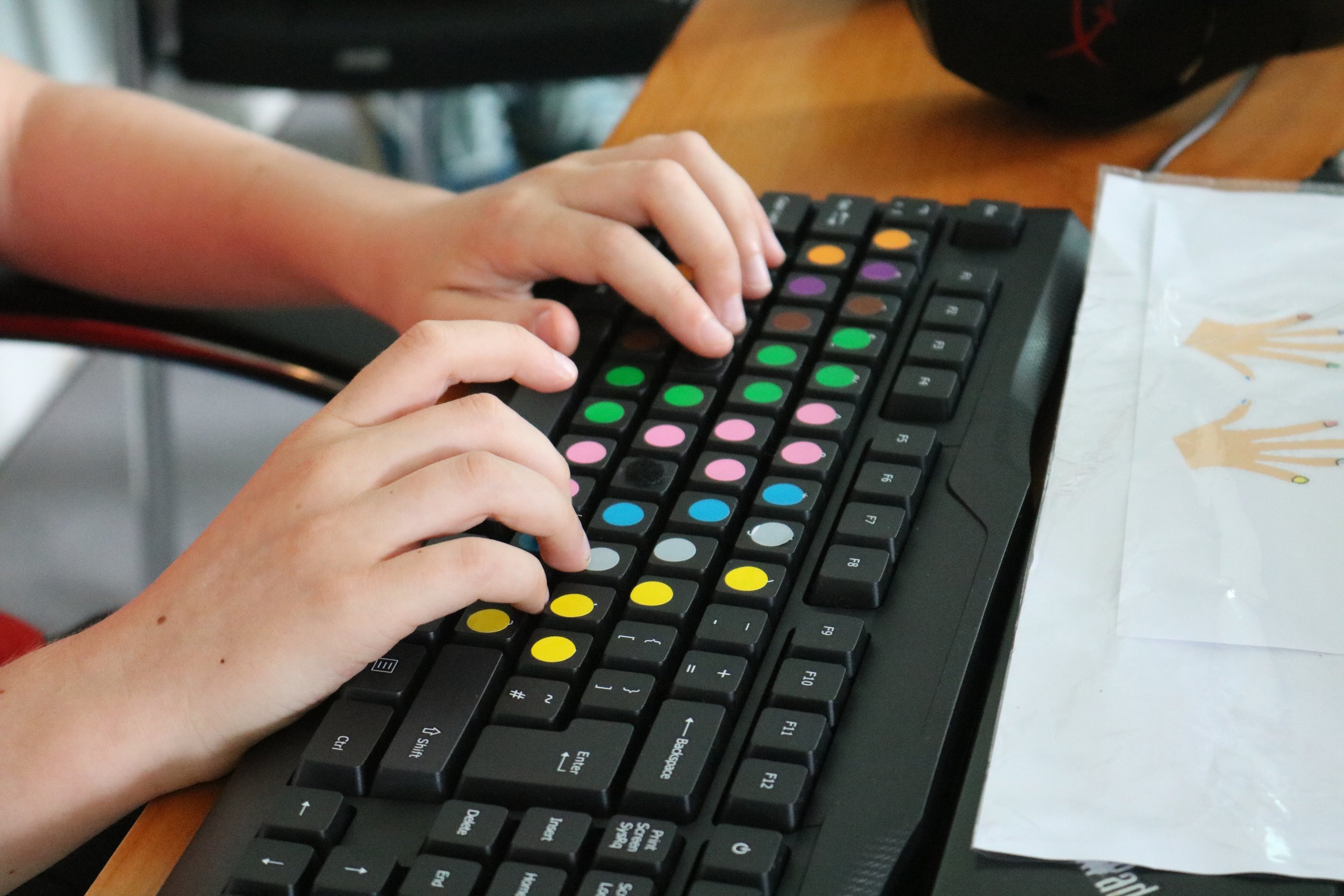The course is 4 days of tuition at Bell House from Monday to Thursday from 1.30pm to 3.00pm.
Monday 29th May 1.30pm – 3.00pm
Tuesday 30th May 1.30pm – 3.00pm
Wednesday 31st May 1.30pm – 3.00pm
Thursday 1st June 1.30pm – 3.00pm
Children who attend the course will take away a special keyboard to keep practising on, continued access to the online software and a certificate comparing your child’s handwriting speed to their touch typing speed.
Booking
The 4 day course costs £140 (including keyboard and software licence).
Bursary places are available – please email [email protected] for more details.
On booking we will email for further details about your child’s dyslexia, their age etc. Please note that this course is only for those with Dyslexia and who are in Year 5 or 6.
Before booking please be aware that the intention is that the children continue their touch-typing practice beyond the course so that they become proficient. This cannot be achieved in one week. It requires regular and prolonged practice.
Parents and children meet up after a month, to celebrate progress and receive a certificate which can be used as evidence at school for use of a laptop.
Who is this for?
This course is for pupils with dyslexia, as they will benefit most from this multi-sensory style of teaching. To ensure this course is targeted as effectively as possible, it will be open only to students in Year 5 and 6.
What to bring?
● Laptop with a USB port and ability to connect to wireless internet (if you do not have a laptop please let us know)
● Headphones
Why Touch-typing?
Touch-typing can be hugely beneficial for a child with dyslexia. If a child is confident touch-typing before they leave primary school, they are more likely to be allowed to use a laptop for their exams. According to the British Dyslexia Association, ‘some dyslexic students find typing easier than handwriting, as the tactile element of pressing the keyboard can help with managing difficult words.’ On a computer it is easy to correct mistakes, move words around and it is non-judgmental, giving children greater confidence.

